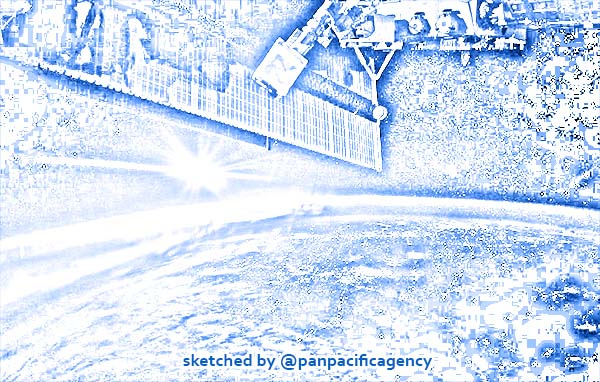Air pressure drop registered in Russian module aboard the ISS

A handout picture made available by NASA and taken by US astronaut Scott Kelly from the International Space Station (ISS) on 07 October 2015 shows an aurora looming over Planet Earth. The Aurora Borealis, or Nothern Lights, have been visible this week. EPA/SCOTT KELLY / NASA. Sketched by the Pan Pacific Agency.
MOSCOW, Mar 1, 2021, TASS. The air pressure in the intermediate chamber of the Russian Zvezda module aboard the International Space Station (ISS) where a crack was found dropped over the weekend, cosmonaut Sergei Ryzhikov said during a communications session with Russia’s Flight Control Center on Monday, TASS reported.
“The air pressure in the compartments of the intermediate chamber is 730 [mm of mercury] and 465 [mm of mercury] at present,” the cosmonaut reported during the talks with Earth broadcast live on NASA’s website.
On February 26, the Russian cosmonauts closed the hatch of the intermediate chamber. The air pressure measured 730 mm of mercury there at that time. During the weekend, the Russian crewmembers monitored the air pressure in the intermediate chamber every four hours.
The press office of the Russian space agency Roscosmos told TASS last week that the cosmonauts had temporarily isolated several possible air leak spots. Following this, the Russian crewmembers opened them and examined them with the help of a microscope and other instruments and then temporarily sealed them again. This week, the cosmonauts are planning to seal the first crack.